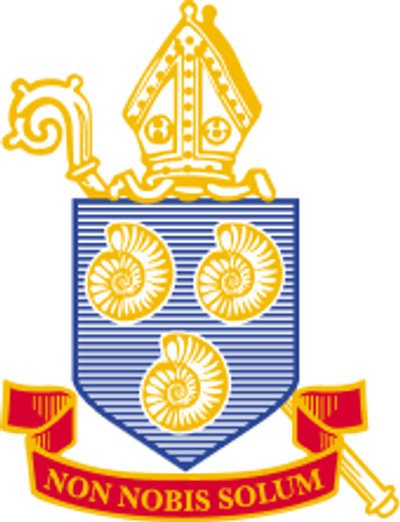Mathematics is an integral part of the Australian Curriculum and every student’s education at St Hilda’s. It’s not just about numbers and equations; mathematics is crucial to the development of skills that enhance problem solving, critical thinking, analysing and reasoning.
Why is Mathematics so important?
The Junior School is where the foundation for mathematical concepts is laid. This
foundation provides the basis for more complex topics in the future. Mathematics in the
Australian Curriculum is cyclical, meaning that students are required to constantly
review concepts, making connections between prior and new knowledge. Without a
strong foundation, students may find it difficult to achieve a full understanding of more
complex topics in Middle and Senior school.
The curriculum is focused on building students’ capacity for the following proficiencies:
understanding, fluency, problem solving and reasoning. Mathematics is everywhere in
our daily lives. For example, calculating money, telling the time, measuring ingredients,
etc., making it an essential skill. Developing the proficiencies makes mathematics more
meaningful for children and helps them apply what they learn to real-world situations.
Problem solving encourages students to analyse situations, breaking them down into
smaller parts and finding solutions. These skills are valuable not only for learning but
also for navigating life’s challenges.
Mathematics can open the doors to a wide range of career opportunities. Professions in
science, technology, engineering and mathematics all require strong mathematical
skills. Immersing students in a learning environment where mathematics is valued can
help them consider these career paths at a later stage.
How Parents Can Support Their Daughter’s Mathematical Development
Creating a positive attitude in the home towards mathematics can have a significant
influence towards a child’s outlook in the same area. Take opportunities to express
enthusiasm for the subject and incorporate mathematics into everyday activities.
Counting objects when grocery shopping, measuring ingredients when cooking together
and using calendars are just a few of so many suggestions. Engaging in activities such
as these with your daughter can make mathematical learning enjoyable and practical.
Playing games like chess, Sudoku, board games and card games is another great way
to strengthen your daughter’s maths skills while also having fun. Most importantly,
encourage your children and understand that everyone learns at their own pace. Use
positive language when your daughter faces a challenge and celebrate every success,
big and small.
Mathematics not only equips our students with valuable skills but can also foster a
deep sense of curiosity and wonder about the world around them. As we continue to
encourage and inspire our girls as young mathematicians, we can look forward to a
future filled with innovation and discovery.


